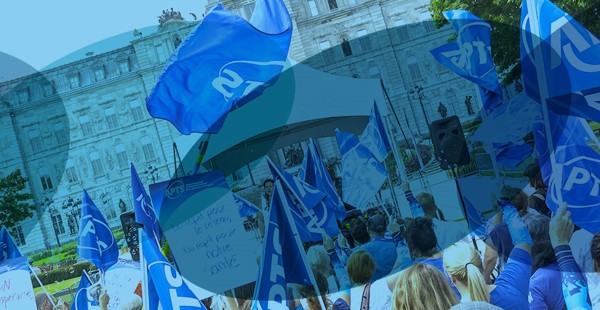Open letter | Feminist Resistance and the Climate Emergency
February 23, 2023

From generation to generation, in the streets and in private spaces, feminists are waging a daily struggle to defend their rights. From a rich range of backgrounds, they are united in the outrage that fuels them and the sisterhood that sustains them. They are done negotiating. They will not remain silent. And one of the current issues impelling feminists to speak out and resist is the climate emergency.
The climate crisis is intensified by certain environmentally harmful projects and plans that create divisions not only between women and men but also between women themselves. There is a link between poverty among women (poverty rates are higher for women than men) and their increasing vulnerability to the impact of climate change, especially in the form of heat waves. Owing to their socioeconomic status, the gendered division of labour, and their traditional role as caregivers, natural disasters lower their life expectancy and raise their stress levels. Several case studies of extreme climate events have also shown an increase in violence against women – particularly domestic violence.
Climate change has an even harsher impact on groups of women who are subject to intersectional discrimination. These women are more likely to work in precarious jobs, and face barriers in accessing health care and social services, and healthy nutrition based on good quality food available close to home. In essence, we have to recognize that there are links between the domination of women, the domination of colonized and racialized peoples, and the domination of nature. Resistance is the obvious response to the supremacy of capitalist patriarchy in the political and economic spheres and in the media. Ecofeminism is a philosophy that can encourage us to reconsider our relationship with the Earth and its inhabitants. But we still need to raise awareness of the systemic changes that must be made.
Unfortunately, the Québec government does not systematically take into account the ways that climate change affects women differentially. But this analysis is essential in order to implement inequality mitigation measures at every stage of a project, from planning to assessment. Our various levels of government all have the tools required to conduct intersectional gender-based analysis (GBA+), but whether they have the necessary political will is an open question.
The Québec government must also live up to the commitment it made during the signing of the Beijing Declaration and Platform for Action at the 1995 Fourth World Conference on Women. By refusing to adopt a motion in connection with March 8, the National Assembly rejected an opportunity to acknowledge the manifold and diverse nature of feminist struggles in Québec. We cannot understand why the government is deliberately choosing to ignore these struggles.
We are calling on you, Mr. Legault and Ms. Biron, to apply intersectional gender-based analysis proactively in all government departments and agencies.
We are advocating for the rights of all women in Québec and beyond. Since Québec is one of the parties accountable for the climate crisis, it needs to shoulder its responsibilities towards those hardest hit by the crisis, including women facing intersectional oppression. The time for action is now.
The Collectif 8 mars brings together labour unions and independent feminist community organizations representing nearly 800,000 women, 17 regional roundtables on the status of women, and more than 450 women’s groups and mixed-gender groups.
Sources
Marie-Andrée Gauthier, general coordinator, RTRGFQ
Nathalie Arguin, secretary-general, CSN
Jessica Bourque, 2nd vice-president, SPGQ
Maryève Boyer, vice-president representing women, FTQ
Line Camerlain, 1st vice-president, CSQ
Karine Drolet, president, RTRGFQ
Johanie Dupras-Renaud, provincial officer responsible for the status of women, CSD
Sandra Etienne, 4th vice-president, APTS
Femmes de diverses origines/Women of diverse origins (FDO/WDO)
Fédération des femmes du Québec (FFQ)
Nathalie Garvin, vice-president status of women, SFPQ
Mélanie Hubert, president, FAE
Françoise Ramel, vice-president, FIQ

